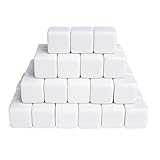A buddy of mine had a trick of his stolen a few years ago. We know it was stolen because we were in a show with the guy that stole the bit. Later when we asked him about where he learned it, he openly admitted he saw my friend do it and he started doing it. My friend asked him to stop doing the trick…the guy didn’t.
Now let’s fast forward to today. The tricks originator has recently run into several people who learned the stolen trick from the guy that stole the trick. That made my friend upset and he contacted the trick thief and asked him to stop doing it and to not teach it to other people.
The trick thief’s response amazed me. Here are some quotes from the thief’s response and my commentary:
- “When I first saw you do this I was inspired” Great, be inspired to create, not take!
- “I don’t feel like I would have the right to police what people do and don’t do as far as material.” Ummm…if you created it and the only reason another person is doing it is because they saw you do it, then yes, you have the right to ask them to stop. I do understand there’s the independent invention thing, and that does happen a lot, but it’s not in this case.
- “People do material that I feel I made up as well.” This is the same as saying, “I’m not racist, I have black friends…” it’s a way of justifying taking. Also if you are someone that freely takes stuff, then of course you can’t have a problem when your stuff gets taken.
At the end of the day takers gonna take and there’s really nothing you can do about it. People who do original material and going to fade away and it sucks when someone takes your bit. In magic there are a many creators that have stopped performing because of this. I know of several magic creators that no longer put out marketed material because of it getting knocked off. They’ve lost the incentive to create.
You can justify taking a bit all day long, however in the end it’s only going to hurt the industry as a whole. Creative acts will stop working publicly, then the well will dry for the acts that only take and not create. This leaves a industry that will stagnate.
How do you get material if you aren’t creative?
Easy, hire a creative person…or actually put in the work and starting writing down ideas. Either way works and pushes the industry forward.
Louie





 It’s a book on theory of how to become a better magical performer. One of the things he mentioned was writing down your “ideals” for your magic. Some guidelines as an artist of what you want for your magic / show.
It’s a book on theory of how to become a better magical performer. One of the things he mentioned was writing down your “ideals” for your magic. Some guidelines as an artist of what you want for your magic / show.